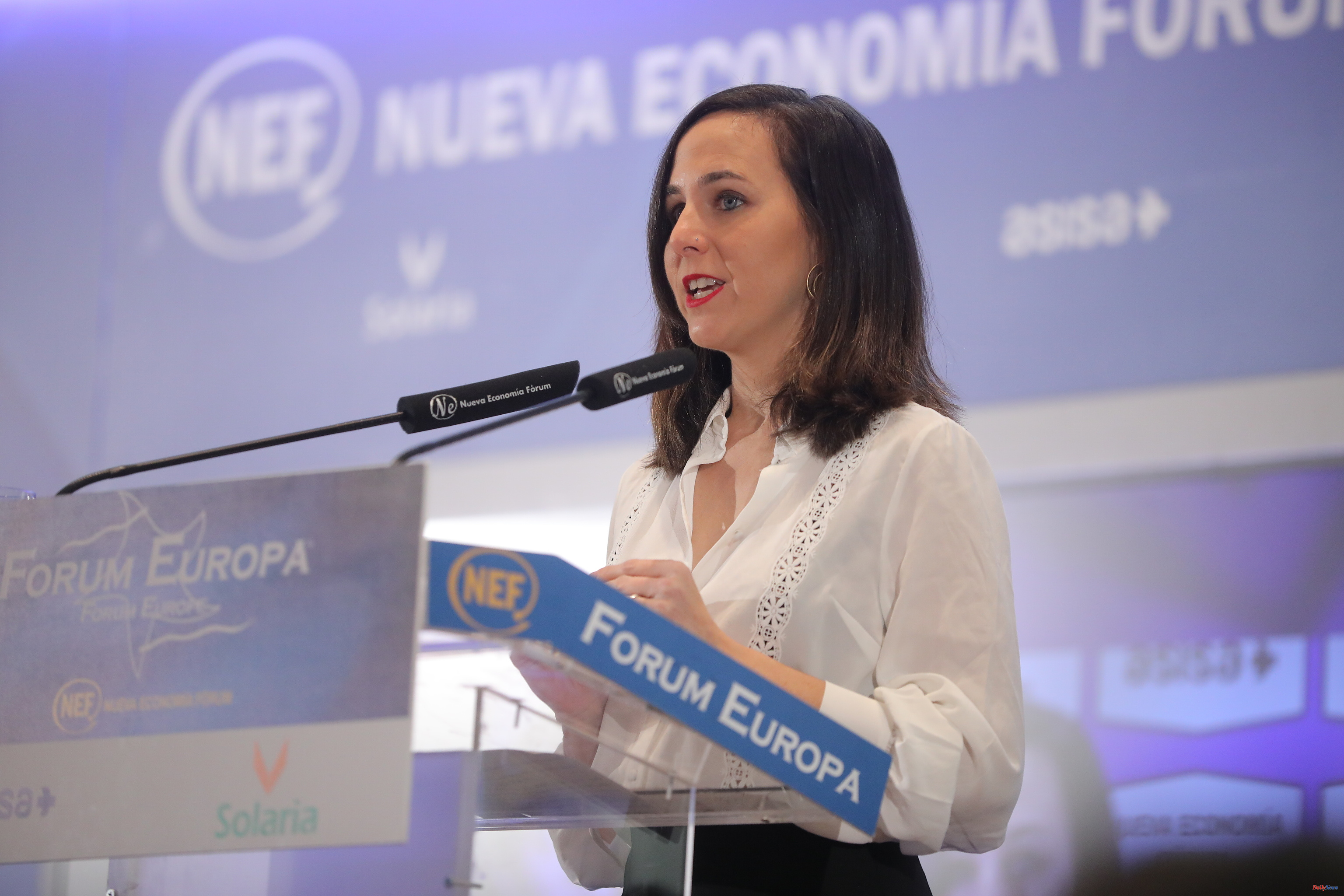Change of course on the flank of the coalition led by the Minister of Social Rights, Ione Belarra, in the roadmap to address the price crisis in supermarkets. Faced with the outright rejection of the government's majority partners to intervene in the food market by capping the prices of the shopping basket, Podemos changes its strategy and now proposes a discount on the prices of basic foods, in the style of the model that operated about fuels.
But not only that, but the new 'anti-inflation plan in the super' that the purple formation has designed contemplates a special monitoring of prices in large stores to avoid abuses and unjustified increases and puts a new measure on the table: imposing fines companies in the sector to increase their profit margins and consider repeated infringements tax crimes.
To begin with, Podemos has proposed to the PSOE a 14.4% discount on the price of a basic food basket, "which would make it possible to bring them down to the level they were in February 2022, when the war in Ukraine broke out", as as they assure from the purple formation. This measure would cost around 5,000 million euros, compared to the 700 million that the VAT reduction on basic foods will entail. 'The things of eating' thus open a new debate among the members of the progressive coalition at the start of the electoral year.
And it is that the new proposal of those from Belarra comes after the refusal of the socialist part of the Executive, in particular the economic area led by Vice President Nadia Calviño and the Minister of Agriculture, Fisheries and Food, Luis Planas, the main interlocutor of the sector of distribution, to put a cap on the prices of foods considered basic within the shopping basket, understanding as such those affected by the VAT reduction in force since January.
The purples have analyzed the final inflation data for January, published this Wednesday by the National Institute of Statistics (INE), and have concluded that food is becoming more expensive "at a rate higher than the CPI". Specifically, 15.4%, compared to a general rate of 5.9%. And contrary to the members of the PSOE, they consider that the VAT reduction (which has resulted, for the moment, in a decrease in the prices of the affected foods of 1.6% on average in products such as bread, milk, eggs, fruit, legumes or oil) is not sufficiently containing the escalation of the shopping cart.
With the data on the table, and after the PSOE's refusal to cap prices, as Podemos has been demanding for several weeks, the 'purples', in an initiative led by Belarra and his economic team led by Nacho Álvarez, have sent their partners a written proposal to adapt the same tax model that was applied to fuels to the shopping basket. According to sources from the formation, it would consist of "a bonus that would be effective when paying at the cashier and that would appear on the ticket."
According to Podemos's calculations, the measure would have a "significantly greater" impact on low-income households, which are those who allocate a greater part of their income to food, and would reduce the price of products that are essential in the Spanish shopping basket such as milk, oil, eggs, meat, fish, fruit or bread.
In parallel, after the controversy generated by Ione Belarra after accusing the president of Mercadona, Juan Roig, of being a "ruthless capitalist", Podemos ignores the control of the CNMC, intensifies the offensive against businessmen and proposes to the PSOE that the Information and Control Agency Alimentarios monitor the food prices of that basic shopping basket every week, with special attention to large surfaces. But not only that, but they establish that this Agency imposes fines if the companies increase their profit margins. "In case of repeated infraction, the consideration would become similar to that of a tax crime," explain party sources.
Finally, Belarra also proposes to improve the Food Chain Law and establish a Price Regulation and Control Commission, in order to improve transparency and prepare recommendations to regulate prices in strategic sectors. An aspect, like the whole of the proposal in essence, that clashes with the powers of Minister Planas, let us remember, priority interlocutor of companies in the distribution sector within the Executive.
According to the criteria of The Trust Project












